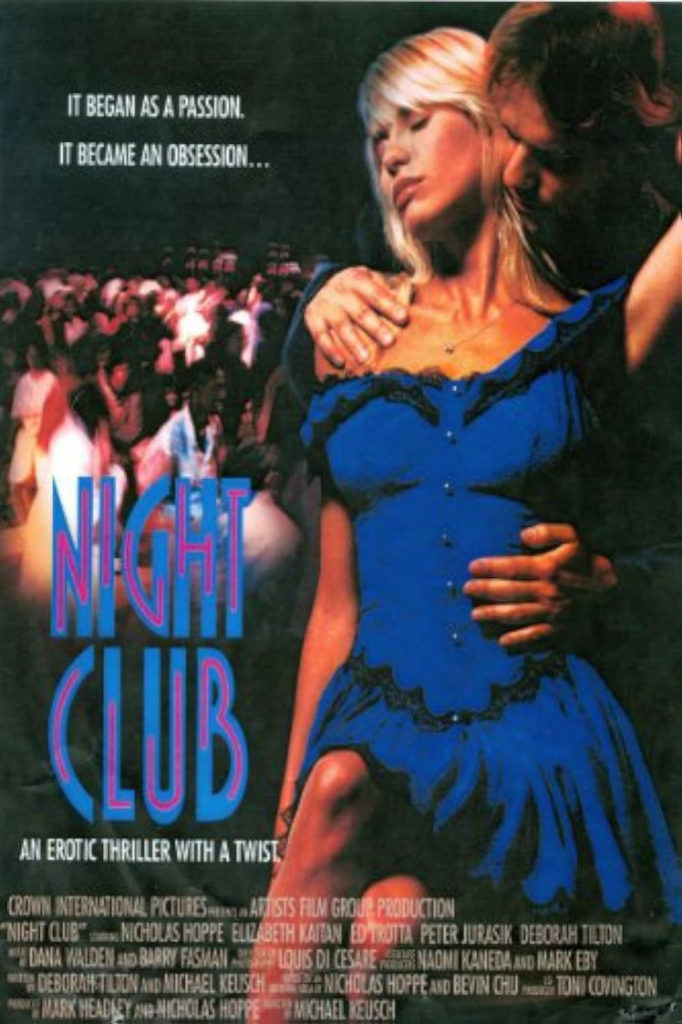 Nick (Nicholas Hoppe, who also produced and had a story credit) has a dream. Well, he has two dreams. And, also a third. Firstly, Nick wants to write the Great American Novel. Dream number two is to open Los Angeles’ newest and hottest nightclub in an old factory building (played by the former Boyle-Midway plant in beautiful City of Commerce, California). Nick’s third dream is to have passionate, unrestrained, and on-demand sex from his wife, Beth (Elizabeth Kaitan).
Nick (Nicholas Hoppe, who also produced and had a story credit) has a dream. Well, he has two dreams. And, also a third. Firstly, Nick wants to write the Great American Novel. Dream number two is to open Los Angeles’ newest and hottest nightclub in an old factory building (played by the former Boyle-Midway plant in beautiful City of Commerce, California). Nick’s third dream is to have passionate, unrestrained, and on-demand sex from his wife, Beth (Elizabeth Kaitan).
The first dream is a noble pursuit that, perhaps, tens of thousands of Americans have tried, only to see their efforts wither on the vine. Still, Nick keeps banging away on the keyboard. His second dream, funded by an inheritance Beth received from her father, and a loan from a gangster, Eddie (Ed Trotta), is in an equal amount of trouble, because the old factory is filled top to bottom with asbestos. That third dream, on the other hand, has something going for it, as, rather than work out the problems in his marriage, Nick hallucinates a slutty version of his wife named Liza, and does the dirty with her, to the titillation of the audience.
That’s Night Club, the 1989 movie from writers Michael Keusch and Deborah Tilton, with direction from Keusch.
Night Club is one of those erotic thriller flicks that used to populate late-night premium cable television in the days before internet porn was a thing. These types of films didn’t offer viewers outright sex, but there was a demand for bared breasts that these movies satisfied. Some had stronger stories than others. Some, like this one, barely had any story at all.
Nick is a shithead. The intention was to make him a lovable loser, but that wasn’t how the movie worked out. He has no money that he didn’t borrow, so he put everything else of value that he has, i.e., his personal relationships, down as collateral on this club. It’s ruining his relationship with Beth, and, because it’s become clear he’ll never be able to pay back Eddie, has put his personal safety in jeopardy, as well.
That’s about as clear as things will get with this movie. Night Club is told from the perspective of Nick, and his perspective is an unreliable one. The narrative Keusch constructed becomes disjointed, jumping around in time, but it’s muddy and contradictory. Rather than confusing the audience in a good way, by allowing them to piece together events like a puzzle, the movie becomes no more than a bunch of set pieces that will maybe lead to sex with Liza. As far as these types of flicks go, Night Club is no Andrew Stevens flick.
It shouldn’t take long for a viewer to have enough of Nick, if not outright despise the character. Hoppe plays the character as hangdogged and whiny. His character is supposed to feel as if he is somewhat unworthy of success, but Hoppe takes his mumbly portrayal too far, to the point the movie has a protagonist not worth rooting for. As for Kaitan, eh. She was a model turned b-movie actress. She wasn’t in the movie for her acting skills. The big surprise in the cast was Trotta. His character was believable, and his acting was strong. His performance was wasted in this mangy mutt of a movie.
What hurts Night Club’s watchability isn’t the poor acting, the convoluted story, or the too-infrequent sexual encounters in a supposed erotic thriller. The main culprit is the pace. For a story with so many twists and turns, when one steps back and takes in the entire picture, there’s not a lot going on. Keusch and company seemed determined to fill 81-minutes of running time, and they didn’t care if audiences got bored along the way.
Night Club slinks its way into the Watchability Index in between The Screaming and Stanley at #387. There are better movies with which to relive the glory days of 1990s Skinemax.
